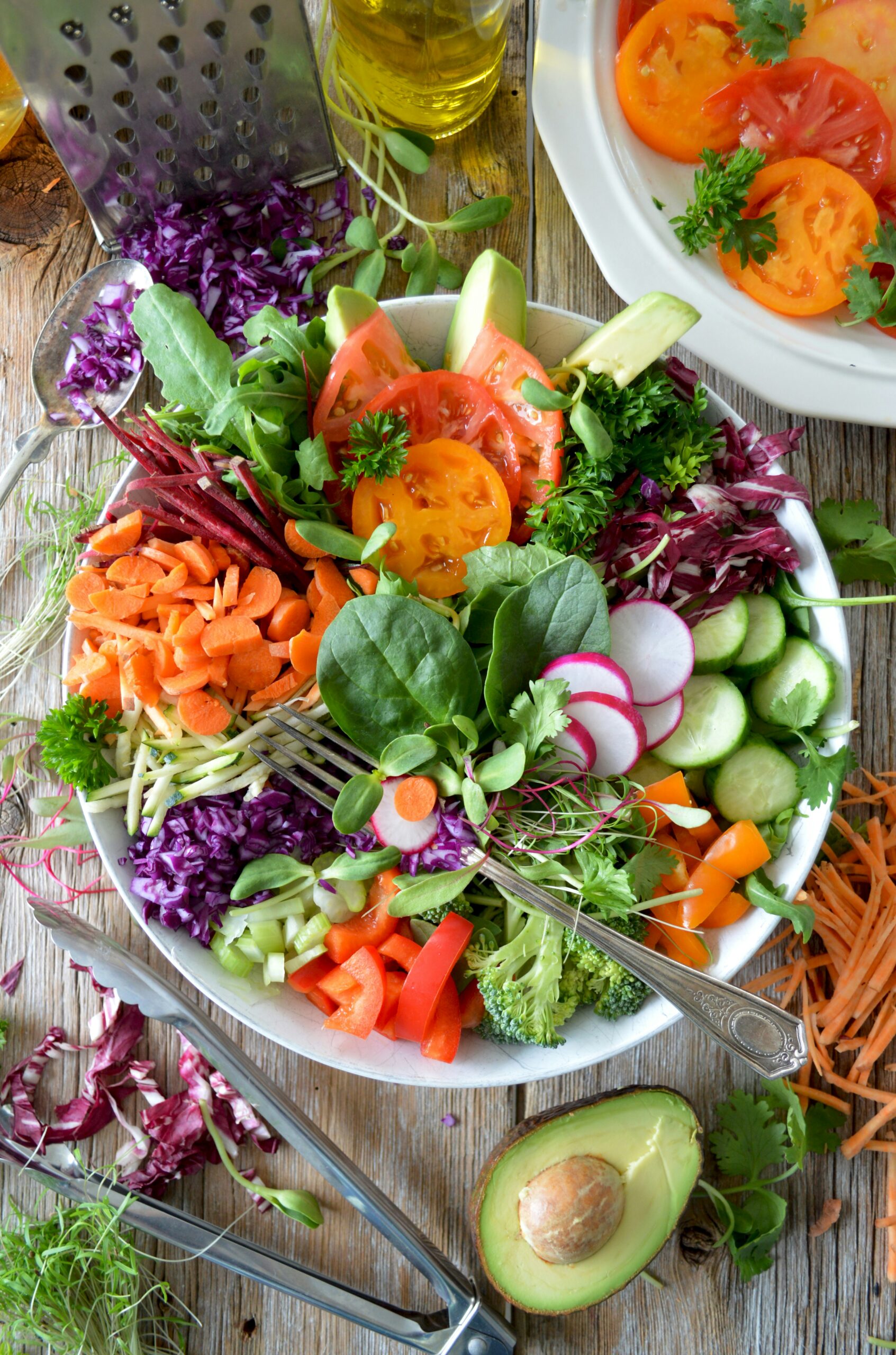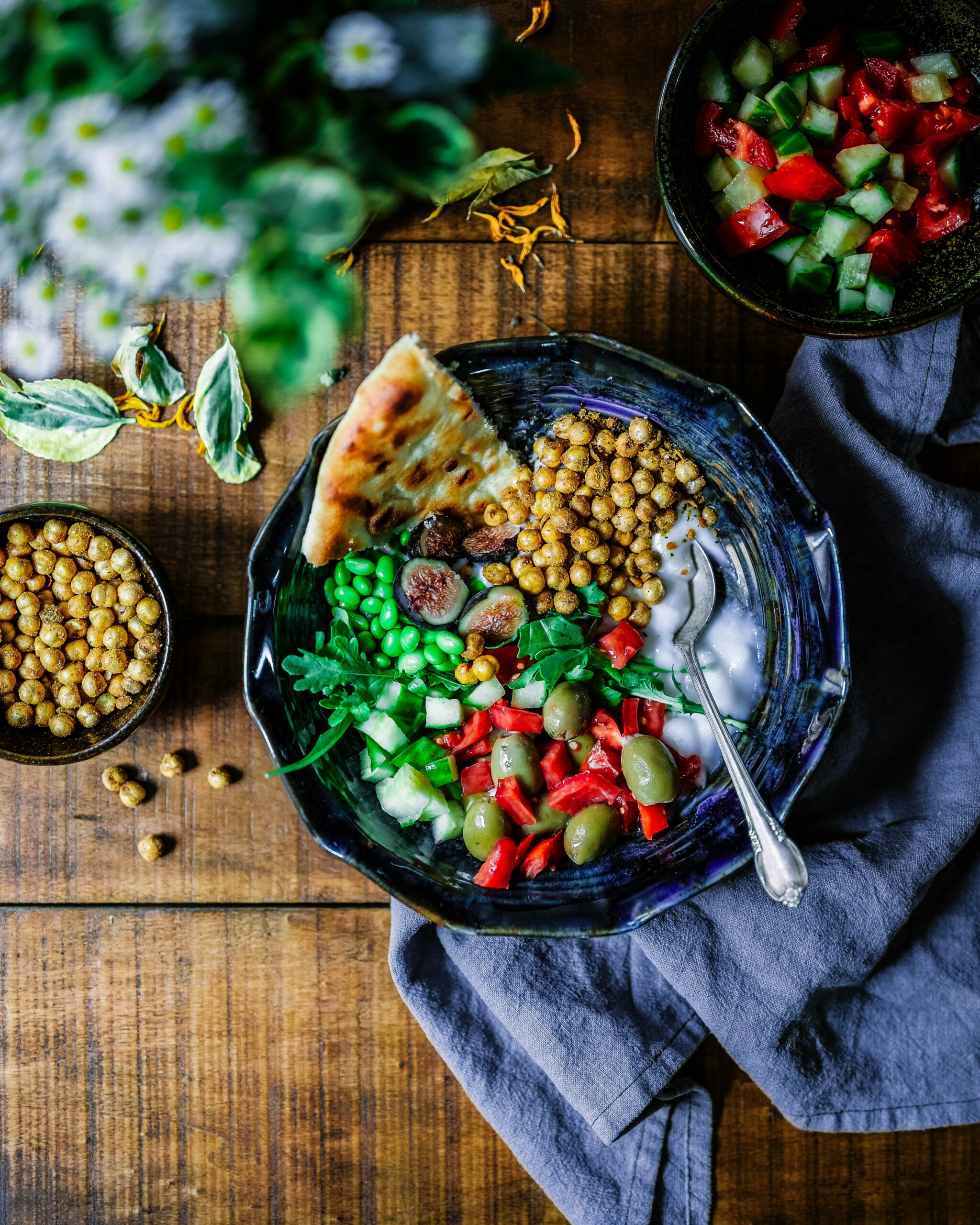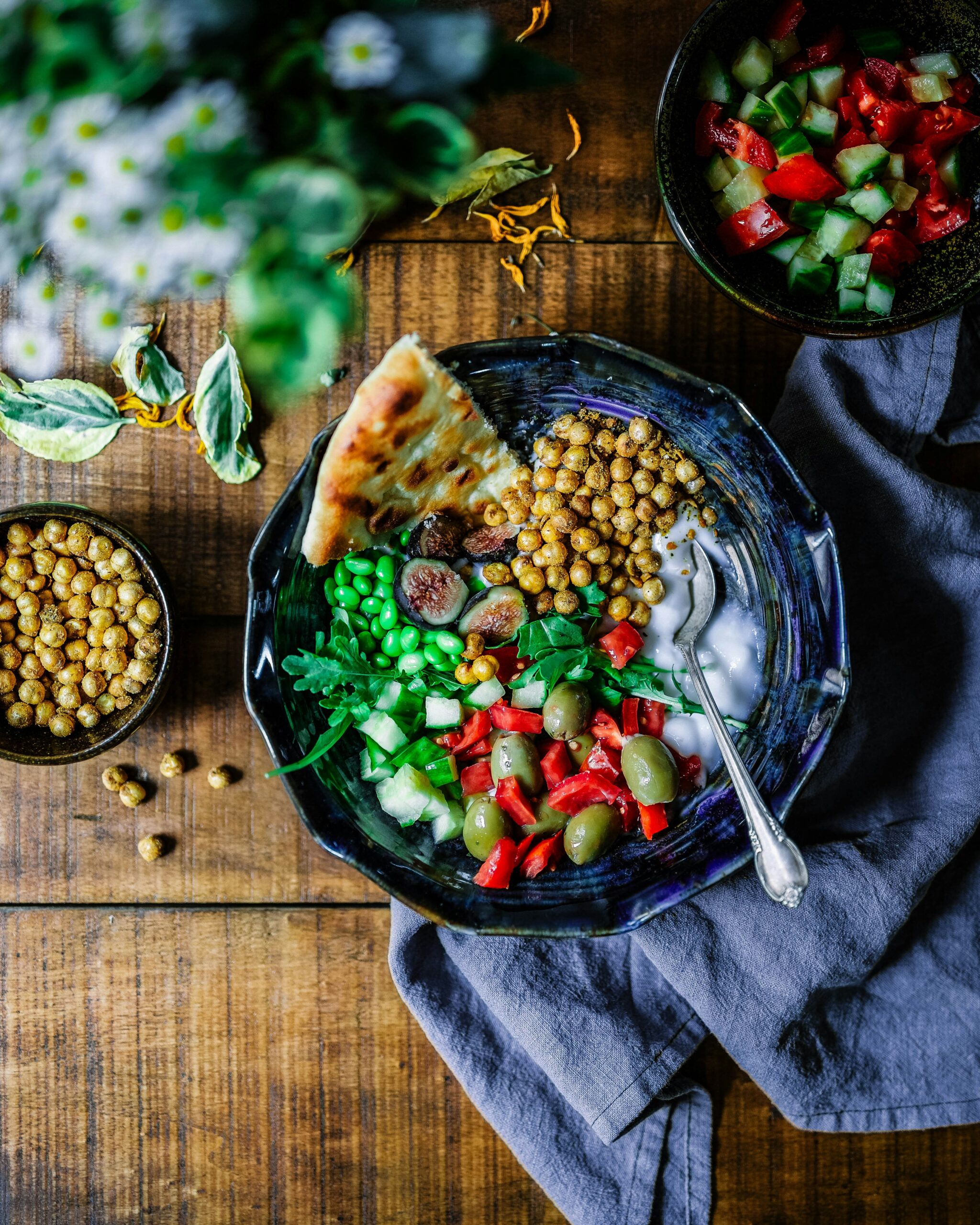Are you a vegetarian or vegan who has been curious about trying the keto diet? Well, you’re in luck! In this article, we’ll explore the steps you can take to make the keto diet work for you, even if your dietary choices prioritize plant-based options. Whether you’re looking to lose weight, improve your health, or just experiment with a new way of eating, we’ve got you covered. So, let’s dive into the world of vegetarian or vegan keto and discover how you can embrace this low-carb lifestyle while still honoring your food choices and beliefs.

Understanding the Keto Diet
Basics of the keto diet
The ketogenic, or keto, diet is a low-carb, high-fat diet that has gained popularity for its potential weight loss benefits and unique effects on metabolism. The diet focuses on reducing carbohydrate intake and replacing it with fat, which puts the body into a state of ketosis. In this state, the body burns stored fat for energy instead of carbohydrates.
Benefits of the keto diet
One of the main benefits of the keto diet is its potential for weight loss. By consuming fewer carbohydrates, the body is forced to burn fat for fuel, leading to increased fat loss. Additionally, the keto diet has been linked to improved insulin sensitivity, reduced inflammation, and increased energy levels.
How the keto diet affects metabolism
The keto diet fundamentally alters the way your body metabolizes nutrients. By limiting carbohydrate intake, the body is forced to rely on stored fat for energy. This leads to the production of ketones, which are the byproducts of fat metabolism. Ketones are used by the body and brain as an alternative fuel source, which can result in improved mental clarity and focus.
Challenges for Vegetarians and Vegans
Differences between traditional keto and vegetarian/vegan keto
While the traditional keto diet emphasizes high-fat animal products, vegetarian and vegan keto diets focus on plant-based sources of fat and protein. This means that while vegetarians may still consume dairy and eggs, vegans must rely solely on plant-based options.
Common challenges vegetarians/vegans face while going keto
One of the main challenges for vegetarians and vegans on a keto diet is obtaining enough protein. Plant-based protein sources often have higher carbohydrate content, making it difficult to maintain a state of ketosis. Additionally, finding suitable substitutes for dairy products can be tricky for those following a strictly vegan keto diet.
Understanding the importance of nutrients diversity due to diet restrictions
Vegetarians and vegans face unique diet restrictions that can impact nutrient diversity. Since they avoid animal products, it’s important to ensure a wide variety of plant-based protein sources, healthy fats, and essential vitamins and minerals. By incorporating a range of fruits, vegetables, whole grains, and plant-based proteins, the nutritional needs of a vegetarian or vegan can be effectively met.
Getting Enough Protein on a Vegan or Vegetarian Keto Diet
Essential proteins and where to find them
On a vegan or vegetarian keto diet, it is crucial to obtain adequate protein to support muscle maintenance and overall health. Good sources of plant-based protein include tempeh, tofu, seitan, legumes, nuts, and seeds. Incorporating a variety of these protein sources into meals can help ensure a balanced diet.
Ensuring a balanced diet while on a vegan/vegetarian keto diet
To maintain a balanced vegan or vegetarian keto diet, it’s important to plan meals that include a combination of protein, healthy fats, and low-carbohydrate vegetables. This ensures a wide range of nutrients and helps prevent deficiencies.
Recommended protein substitutes for vegans and vegetarians
For vegans, protein substitutes such as seitan, tofu, and tempeh are excellent options. These plant-based proteins provide essential amino acids and can be easily incorporated into a keto-friendly meal plan. Vegetarians also have the option of including dairy products like Greek yogurt or cottage cheese as protein sources.
Replacing Dairy on a Vegetarian or Vegan Keto Diet
How to find dairy substitutes
For those following a vegan keto diet, dairy substitutes can be found in a variety of plant-based options. Almond milk, coconut milk, and soy milk can be used as alternatives to dairy milk. Additionally, vegan cheeses made from nuts or soy are available as substitutes for traditional cheese. These substitutes can be used in cooking and baking to recreate favorite keto recipes.
Role of dairy in the traditional keto diet
Dairy products are a significant source of fat and protein in the traditional keto diet. However, on a vegan keto diet, dairy products are typically excluded due to their animal-based origin. It is important for vegans to find suitable plant-based alternatives to meet their dietary needs.
Navigating the challenges of finding suitable dairy substitutes
Finding suitable dairy substitutes on a vegan or vegetarian keto diet can be challenging, but not impossible. Exploring different brands and experimenting with homemade alternatives can help find suitable substitutes. It is essential to read labels and ensure that dairy substitutes are low in carbohydrates and free from animal-derived ingredients.

Balancing Carbs and Fats in Vegan or Vegetarian Keto Diet
The fine balance of carbs and fats in the Keto diet
Maintaining a fine balance of carbohydrates and fats is crucial on a vegan or vegetarian keto diet. By reducing carbohydrate intake, the body is prompted to enter ketosis, where it begins to burn fat for fuel. Consuming ample healthy fats is essential to provide energy and support vital bodily functions.
Managing your macro intake effectively
To manage macro intake effectively on a vegan or vegetarian keto diet, it is important to track the macronutrient content of foods and plan meals accordingly. Balancing a moderate intake of carbohydrates with a sufficient amount of healthy fats is key to maintaining ketosis and optimizing health.
Accommodating nuts and seeds for healthy fats and proteins
Nuts and seeds are excellent sources of healthy fats and proteins on a vegan or vegetarian keto diet. They provide a wide range of nutrients and can be incorporated into meals or enjoyed as snacks. Including a variety of nuts and seeds in the diet ensures a diverse nutrient profile and helps meet fat and protein requirements.
Understanding the Role of Fiber
Importance of fiber in Keto diet
Fiber plays a crucial role in maintaining a healthy digestive system and regulating blood sugar levels. It aids in digestion, promotes satiety, and supports overall gut health. While the keto diet is typically low in carbohydrates, it is essential to include adequate fiber-rich foods to support digestive health.
Best sources of fiber for vegetarians and vegans
Vegetarians and vegans can obtain fiber from a variety of plant-based sources. Foods such as leafy greens, avocados, chia seeds, flaxseeds, and berries are rich in fiber and can be incorporated into a vegan or vegetarian keto diet. These foods not only provide essential fiber but also offer valuable phytonutrients.
Dealing with the risks of ketogenic constipation due to low fiber intake
Due to the potential low fiber intake on a keto diet, some individuals may experience constipation. This can be addressed by ensuring an adequate intake of fiber-rich foods and staying hydrated. It may also be helpful to incorporate a fiber supplement, such as psyllium husk, to support regular bowel movements.

Supplements to Consider for Vegan or Vegetarian Keto Diet
Importance of supplementing the vegan/vegetarian keto diet
Supplements can play a vital role in ensuring that nutrient needs are met on a vegan or vegetarian keto diet. Some essential nutrients, such as vitamin B12, iron, and omega-3 fatty acids, may be more challenging to obtain solely through plant-based sources. Therefore, considering supplements can help prevent deficiencies and maintain optimal health.
Recommended supplements for effective vegan/vegetarian keto diet
For those following a vegan or vegetarian keto diet, recommended supplements may include vitamin B12, iron, omega-3 fatty acids, and vitamin D. These supplements can help ensure adequate nutrient intake and support overall health. It is advised to consult with a healthcare professional before starting any new supplements.
Effect of supplements on the overall success of the vegan/vegetarian keto diet
Supplements can greatly contribute to the overall success of a vegan or vegetarian keto diet by filling potential nutrient gaps and supporting optimal health. By carefully choosing and incorporating the right supplements, individuals can continue to thrive on a plant-based ketogenic diet.
Creating a Suitable Meal Plan
Strategies for planning vegan/vegetarian keto meals
Planning vegan or vegetarian keto meals can be achieved by focusing on whole, plant-based foods that are low in carbohydrates and high in healthy fats. Building meals around non-starchy vegetables, plant-based proteins, and healthy fats provides a nutritious and satisfying foundation for a successful meal plan.
Meal prep tips for a successful vegan or vegetarian keto diet
Meal prepping can make following a vegan or vegetarian keto diet more convenient and sustainable. By dedicating time to plan and prepare meals in advance, individuals can ensure they have healthy options readily available. Batch cooking, using meal prep containers, and having a variety of ingredients on hand can simplify meal preparation throughout the week.
Maintaining the Vegan or Vegetarian Keto Diet Long-Term
Tips for sustaining the diet long-term
To sustain a vegan or vegetarian keto diet long-term, it is important to focus on variety, flexibility, and balance. Incorporating a wide range of plant-based foods, experimenting with new recipes, and allowing for occasional flexibility can help prevent monotony and promote adherence to the diet.
Dealing with social challenges of the vegan/vegetarian keto diet
Social situations can sometimes present challenges for individuals following a vegan or vegetarian keto diet. To navigate these challenges, it can be helpful to communicate dietary needs in advance, offer to bring a dish to gatherings, or research restaurants that cater to plant-based and keto-friendly options.
Managing eating out or travel while maintaining the diet
Eating out or traveling can pose additional challenges for individuals on a vegan or vegetarian keto diet. However, with proper planning and research, it is still possible to make suitable food choices. Looking for restaurants that offer plant-based and keto-friendly options, packing snacks, and having a backup plan can help ensure dietary needs are met.
Monitoring Your Health and Wellness on Keto Diet
Proper hydration and why it matters
Proper hydration is important for overall health and well-being, especially on a keto diet. The body excretes more water and electrolytes when in ketosis, making it crucial to stay hydrated. Adequate water intake helps prevent dehydration, supports digestion, and promotes optimal bodily function.
Key symptoms to monitor for a successful vegan/vegetarian Keto diet
Monitoring key symptoms can provide insight into the success of a vegan or vegetarian keto diet. Some key symptoms to monitor include sustained energy levels, improved mental clarity, stable blood sugar levels, and overall well-being. Should any concerning symptoms arise, it is important to consult a healthcare professional.
Routine check and professional consultation
Regular check-ups with healthcare professionals are essential when following a vegan or vegetarian keto diet. This allows for monitoring of nutrient levels, assessment of overall health, and personalized guidance to ensure that the diet is meeting individual needs. Consulting with a registered dietitian or nutritionist can provide valuable support and guidance throughout the journey.

